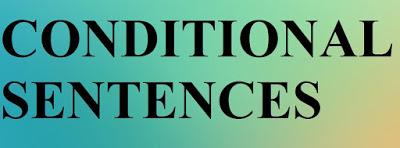If you add two and two, you get four.
If it rains, we’ll stay at home
If I won a lottery, I would go on a holiday.
If I had seen her, I would have stopped her.
In the above sentences general truths, probability, improbable situation and real situations are shown.At times, it becomes difficult to talk about the same because of the deficit knowlege of grammar used to frame such sentences.
In the following article, we will learn how to make sentences.

What Are the Different Types of Conditional Sentences?
There are four different types of conditional sentences in English.
- Zero Conditional Sentence
- First Conditional Sentences
- Second Conditional Sentences
- Third Conditional Sentences
How to Use Zero Conditional Sentences?
Zero conditional sentences express general truths, habits and scientific facts.
Consider the following examples:
Example: If you don’t brush your teeth, you get cavities.
Example: When people smoke cigarettes, their health suffers.
Note: When using the zero conditional, the correct tense to use in both clauses is the simple present tense. A common mistake is to use the simple future tense.
How to Use First Conditional Sentences?
First conditional sentences are used to express situations in which the outcome is likely (but not guaranteed) to happen in the future. Look at the examples below:
Example: If you join English and Public Speaking Sessions at Wabs Talk, you will overcome glossophobia.
Example: If you set your mind to a goal, you’ll eventually achieve it.
Note: We use the simple present tense in the if-clause and simple future tense in the main clause—that is, the clause that expresses the likely outcome.
How to Use Second Conditional Sentences?
Second conditional sentences are useful for expressing outcomes that are completely unrealistic or will not likely happen in the future. Consider the examples below:
Example: If I inherited a billion dollars, I would travel to the moon.
Example: If I joined best speaking english institute, I could hone my soft skills.
Note: Use the simple past tense in the if-clause and an auxiliary modal verb (e.g., could, should, would, might) in the main clause
How to Use Third Conditional Sentences
Third conditional sentences are used to explain that present circumstances would be different if something different had happened in the past. Look at the following examples:
If you had taken Personality Development Sessions at Wabs Talk, you would have cleared the interview.
If I had cleaned the house, I could have gone to the movies.
These sentences express a condition that was likely enough, but did not actually happen in the past.
Note: When using the third conditional, we use the past perfect (i.e., had + past participle) in the if-clause. The modal auxiliary (would, could, shoud, etc.) + have + past participle in the main clause expresses the theoretical situation that could have happened.